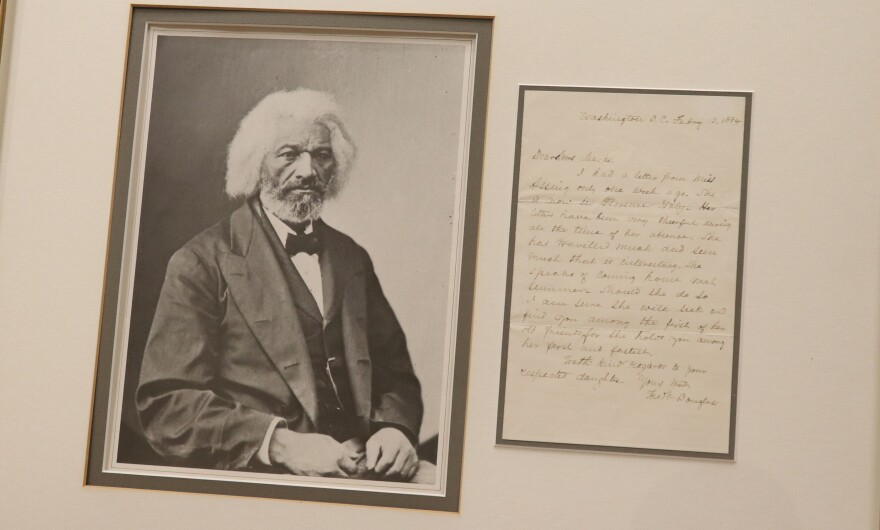Yale historian David Blight says when he first saw a collection of family scrapbooks of the great abolitionist Frederick Douglass, he was astonished.
Blight had been fascinated by Frederick Douglass all of his life. He’d written a book and edited autobiographies about the escaped slave who became the greatest orator of his day. But the scrapbooks offered new insights into Douglass’ life and eventually inspired Blight’s 2018 Pulitzer Prize-winning biography, Frederick Douglass: Prophet of Freedom.
We depend on your support. Donate to Connecticut Public today.
The materials belonged to a collector, Dr. Walter Evans, and have recently been acquired by Yale’s Beinecke Library.
Connecticut Public Radio’s Morning Edition host, Diane Orson, spoke with David Blight. Here are highlights from their conversation:
How did you learn of the materials?
It happened about 14 years ago. I went to Savannah, Georgia, to give a talk about Frederick Douglass’ autobiographies to middle and high school teachers. My host was the Georgia Historical Society and they introduced me to Walter Evans that day. He took me over to his house. He got out on the dining room table portions of this Frederick Douglass collection and showed me what he had.

When you first started poring over this collection, what surprised you?
Well, what’s so stunning about the Evans collection is it covers the last third of Douglass’ life. He lived till 1895. His sons started keeping scrapbooks -- detailed, huge scrapbooks, thousands of newspaper clippings. But the collection also contains a lot of family letters and family documents as well as photographs.
It opens up an understanding of Douglass and his extended family. He was married to his first wife Anna for 44 years. She died in 1882. He remarried a year and a half later to a white woman, Helen Pitts. It was the most scandalous marriage of the 19th century in America.
Most important was that it allowed a depth of understanding of the older Douglass, the aging Douglass, the old radical outsider who becomes a kind of political insider. And that’s a fascinating story.
What you’re describing is really a very human story.
Absolutely. There’s a deep story here of a, in some ways, pretty modern extended family of a great man that was very complicated. And there’s also a great political story here, because Douglass became a very prominent political voice in the 19th century, the most important African American voice. And so much of that voice, and the experiences of his constant travel, are revealed in that collection.
NPR recently invited young descendants of Frederick Douglass to read and respond to excerpts of his famous speech, What to the Slave is the Fourth of July?





